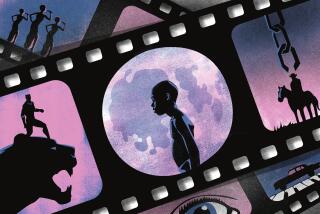Ever-Hungry Readers Enjoy a Steady Diet of ‘Chicken Soup’
Down in the dumps, Bunky? Listen up:
Several years ago, two professional motivators put together a batch of upbeat stories and took them to New York City to sell. Some 33 smarty-pants publishers turned down the manuscript, saying the tales were too nicey-nice and lacked edge.
Spurred by the spurning, Jack Canfield and Mark Victor Hansen approached a small press in Florida. The publisher read the collection while sitting in an airport. He cried.
To find a suitable name for their feel-good anthology, Canfield and Hansen agreed to meditate for a week. Canfield prayed to a higher power and “waited in a receptive mode.” Hansen chanted the mantra “mega-best-selling title” 400 times before falling asleep. After several nights of noodling, Canfield hit upon “Chicken Soup,” the catchy comestible that’s also known as “Jewish penicillin.”
In 1993 “Chicken Soup for the Soul: 101 Stories to Open the Heart and Rekindle the Spirit” appeared, and the rest is publishing history--and hysteria.
The book launched a genre that became an industry that today is as ravenous and rampant as a rhinovirus. Every general-interest paperback bestseller list in the country has at least one “Soup” stain on it. Some 14 million “chicken books,” as Canfield refers to them, have been sold. More than a dozen titles are on the shelves of bookstores, discount stores, drugstores and gas stations. Still more are liable to pop up while you’re reading this.
Each volume is packed with brief inspirational stories of tribulation and triumph--illiterates who learn to read, folks who overcome deformities, feeders of the hungry, champions of the downtrodden, defiers of death.
The authors listed on the cover--Canfield, Hansen and usually one or two others--write very little of the books. They are the compilers, the facilitators, the baskers in success. And though celebrity names, such as Bill Cosby, Oprah Winfrey and Dolly Parton, also appear on the front, most of their stories are reprints lifted from elsewhere. The base of the soup is provided by everyday folks who are paid a few hundred dollars.
The titles are self-explanatory and as pedestrian as the prose within. “A 2nd Helping of Chicken Soup for the Soul,” “A 3rd Helping of Chicken Soup for the Soul,” “A 4th Course of” blah blah blah, “Chicken Soup for the Surviving Soul,” “Chicken Soup for the Soul at Work.” There’s a “Chicken Soup for the Soul Cookbook” and, for the temporally challenged, “A Cup of Chicken Soup” that, according to the promotional blurb, “gives readers all of the goodness of the original ‘Chicken Soup’ in half the time.”
*
There are “Chicken Soup” audiocassettes, coffee mugs, gift canisters. There’s a Web site. And you say you want more? There’s always more. “Chicken Soup for the Teenage Soul” has just come out. Arriving in August is one for Christians. One due in October is for mothers.
Asked if he sees an end to the “Chicken Soup” gravy train, Canfield says, “Not for a long time. We have a plan to publish between four and seven books a year for the next five years.”
Nursing a cold that all the chicken soup in the world hasn’t cured, Canfield says by phone that his company, the Canfield Training Group, works closely with Hansen and publisher Health Communications Inc. Together, they will produce one regular chicken book each spring around Mother’s Day and at least three “niche-area” books a year.
On the drawing board are two series of books for young souls, a volume for souls around the world, one for ocean-loving souls and, next year, “Chicken Soup for”--no kidding--”the Pet-Lover’s Soul.”
Can chicken books for strippers, pro wrestlers and operators of heavy machinery be far behind? “Chicken Soup for Kelly Flinn” perhaps?
The thirst seems unslakable, Canfield says. “I think the marketplace could absorb more books, but the media can’t.”
He says it’s hard to promote book after book after book in such rapid succession. “But the people want them. Everywhere I go, people keep saying more, more, more.”
More to Read
Sign up for our Book Club newsletter
Get the latest news, events and more from the Los Angeles Times Book Club, and help us get L.A. reading and talking.
You may occasionally receive promotional content from the Los Angeles Times.







